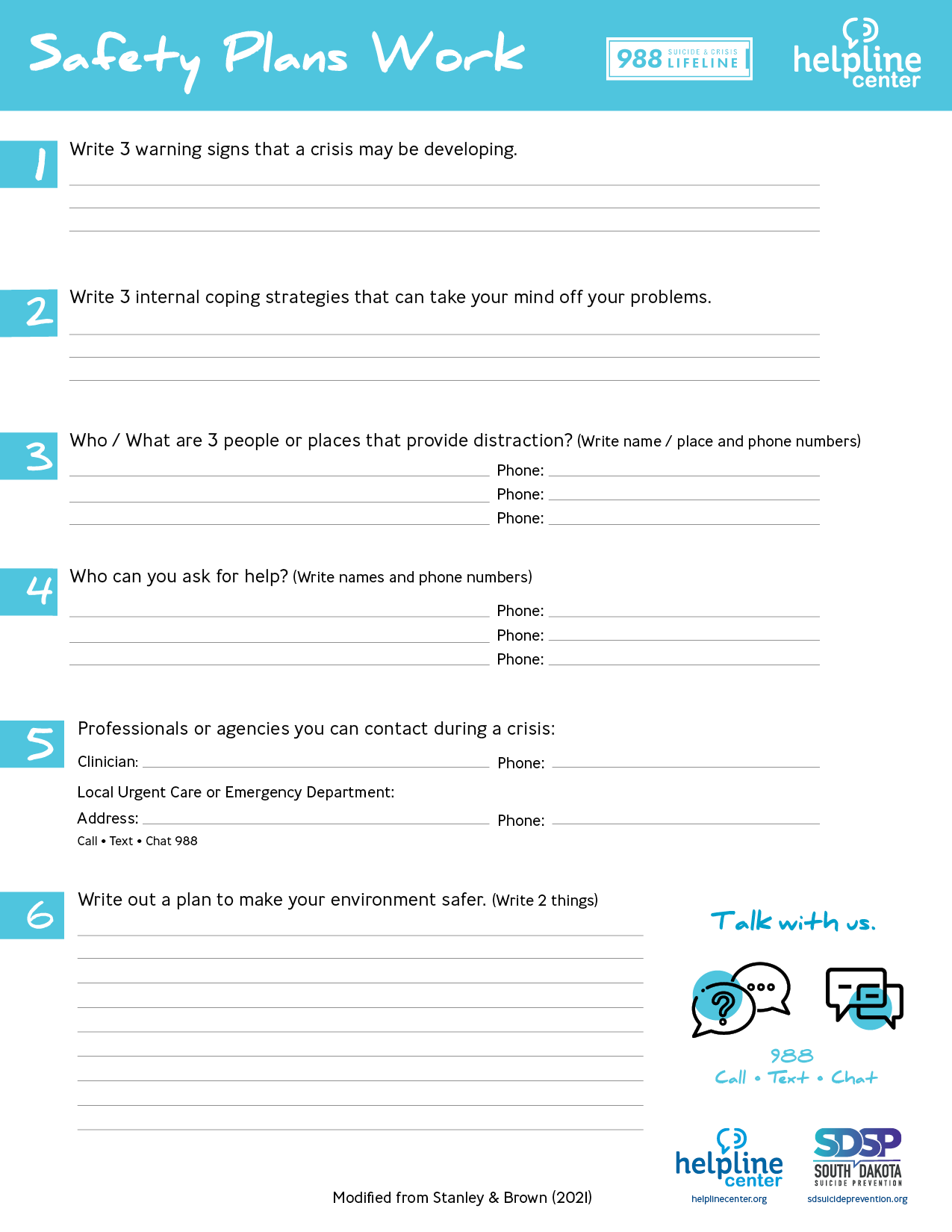Safety Planning Guide
Download a Safety Plan Worksheet here.

The Helpline Center has Safety Plan notebooks available at no cost. If you would like to order one, and other 988 materials, click here.
For a completely digital option, please visit Vibrant’s mysafetyplan.org
Updated June 2023






